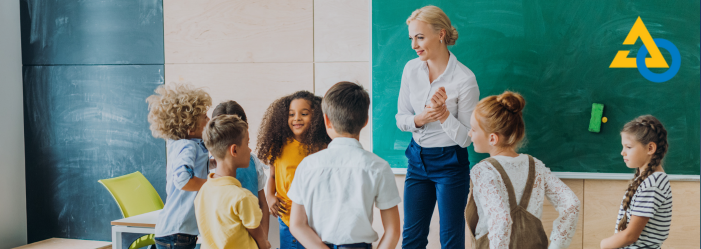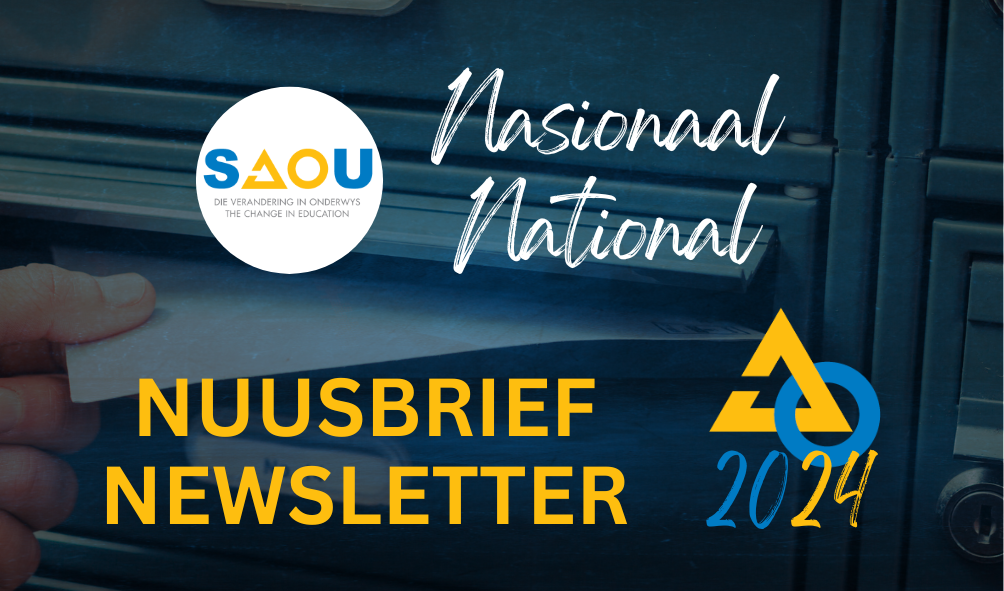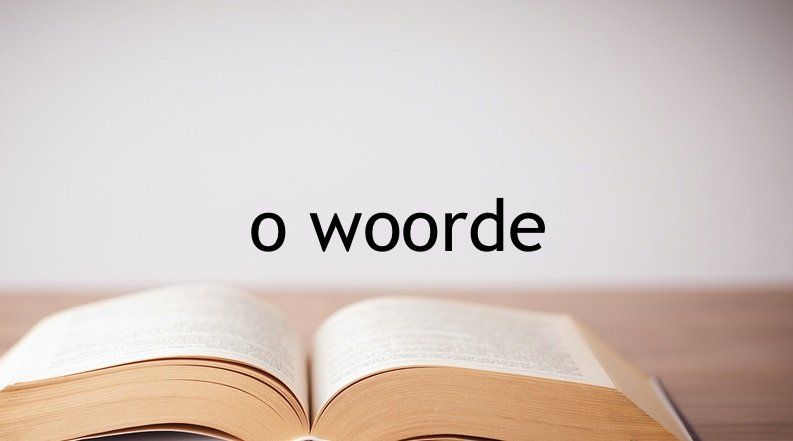Parents can make a difference in schools

As a parent, are you happy with the school that your child attends? Do you sometimes wish that you could be part of critical aspects regarding the school’s decision-making processes? Have you not sometimes seen gaps and realised that in some areas there is room to effect improvements that would make a big difference but you feel as though your hands are tied? Have you not often wondered what can be done to improve the school, overall?
Perhaps you have a skill that can help the school to function better; are you a fundi with information technology or an accountant? Maybe you are a legal person? If the answer is ‘yes’ to any of the above then this is good news indeed. You can most certainly make your services available to the school in the interests of your own child and all the other children. Schools are currently in the process of sending out notices in regard to the election of the new School Governing Body (SGB) for your child’s school during March 2018. Seize the opportunity and make yourself available to serve on the SGB. To be part of the decision-making structure of the school is an ideal way to make a difference in the school environment, not only to the best advantage of your own child, but also for other children - your child’s friends included.
Did you know that in terms of importance to the South African schooling system and important events in the country as a whole, the election of new Governing Bodies for Schools is second only to the General Elections that will take place in 2019? There are more than 24,000 schools country-wide that will elect new Governing Bodies when the term of office of the currently elected Governing Bodies comes to an end.
This election of new members can either work for the good or it can lead to a non-functional school where matters of general management do not enjoy the necessary attention required and thus work to the disadvantage of all at the school and those connected to it. The safety of your child on the school grounds, school fees, and the quality of education delivered at the school is in large measure ensured by the
Governing Body. Parents are an important part of the tripartite partnership that has to work together to guarantee quality teaching and must, therefore, become involved.
What is the role that an SGB must play in a school? The SGB’s primary task is ‘Governance.’ Governance includes the control of all external factors that affect a school together with the determining of the school’s policy. Such policy determines the overall control of the school. Fundamental to that task is the establishing of various policies that underpin the organisation of the school, namely, the admissions policy, code of conduct for learners, discipline, and the language policy and so on: these are seminally important to the management of the school. Another crucial aspect of the SGB’s functions has to do with finances. Finances includes: school fees, budgets, and fund raising projects, in short: the proper administration of the school’s money. It is essential that the SGB carries out this role meticulously. The inputs of parents ensure that the school functions optimally and that their children get the best value for their money.
A further branch of the SGB’s functions is to set up various committees which include finances, buildings and grounds, discipline, hostels, marketing etc. It is important that the needs of the school and the SGB are addressed by these committees. A member of the SGB must at all times be the chairperson of such a committee. These committees make recommendations to the SGB on matters that need to be investigated or addressed. Where required or possible, the committees can be aided by parents or experts who are able to add value in specific instances.
The SGB has further powers invested upon it by Section 20 of the South African Schools’ Act (SASA). It includes writing a Constitution for the school, composing the school’s vision and mission statements, recommendations regarding appointment of teachers, administration and terrain personnel as well as determining the duration of the school day. The SGB is further empowered to rent out the school facilities for the purpose of generating funds for the school.
Section 21 of the Schools’ Act also determines the functions that empower the SGB to take on further responsibilities on behalf of the school. Such functions are granted to a school on a ‘once off’ basis and schools are not required to reapply for permission
to use them in ensuing years. Should an SGB default on carrying out such functions satisfactorily they can be withdrawn by the MEC. These functions include, for example, the purchase of textbooks and any other educational aids, equipment for teachers and/or learners, extramural activities and the subject clusters of the school. Maintenance and refurbishing of school property is also a responsibility that the SGB can take on.
The role of the SGB is also important because it regularly happens that the school is placed in difficult situations by outside instances. The recent Hoërskool Overvaal debacle is one such example. The SGB had to act in the interests of the school and the learners. The result was that the Department of Education took the school to court; the opposite can, of course, also happen. Thus, the SGB and its involvement in the affairs of the school are cardinal. The relationship between the principal and the SGB is one of the most valuable strategic connections within the education system that the past 20 years has yielded. However, that sound relationship is currently being threatened by the department’s proposed amendments to the SA Schools’ Act whereby certain competencies will be taken away from SGBs. Happily, the spontaneous objections to the proposals from members from all quarters has been encouraging.
The principal of the school also plays a role in regard to the responsibilities of the SGB. He or she is responsible for the professional management of the school. The principal is (ex-officio) because of his position and status, a member of the SGB. The principal acts as the representative of the department. The principal can be referred to as the Chief Executive Officer (CEO) of the school. The task of the CEO is to report to the SGB. It is the responsibility of the principal to implement the policies of the SGB as well as the directives of the Department. Furthermore the principal must see to the well-being of each and every staff member as well as ensuring the delivery of quality service.
The school’s management team is put together by the principal. The team comprises deputy heads, heads of department, and sometimes it includes subject heads. The composition can differ from school to school. Strategies and policies are implemented by the management team who also give their input to the SGB in regard to improving
matters within the school. The SGB functions as the schools juristic person. Any contracts with the school can only be entered into through the SGB with the express approval of the Department.
It is highly important that a sound trust relationship between the SGB and the principal be established and maintained at all costs. There must be a clear demarcation of areas of responsibility between the SGB and the principal. Conflict can easily lead to division which in turn will have a negative effect on the school’s service delivery. Both parties must eschew any hidden agendas.
It is clear from all the above that the March elections must put in place an SGB that will fully understand their responsibility in regard to fulfilling their fiduciary responsibilities in the best interests of the school.
It is perfectly understandable that parents are often unwilling to make themselves available to serve on the SGB. Especially working parents are not always sure that they will have the time to carry out all the tasks required by an SGB and a s a result the opportunity to make an active and passion-filled contribution and allowing their voices to be heard.
Obstacles can be overcome and often form the building blocks of new and better relations and cooperation. Parent involvement at this level is inestimable. Mr James Ndlebe (Director for Education Management and Governance) advises parents to either put themselves forward for election or to nominate the best candidate for the SGB and then to vote for that person on the day that the SGB is elected. He says, “Although it takes a community to raise a child, parents must play their part in supporting schools with the education of their children.”

by Anet Burns, Departementshoof, Laerskool Monumentpark, Pretoria
•
16 Jan, 2024
Jy het uiteindelik jou studies voltooi en met die aanbreek van die nuwe skooljaar sien jy uit na jou heel eerste onderwyspos. Hulpmiddels vir jou klas word gemaak en gekoop, en van die kalender tot verjaarsdagplakkaat pas alles by die oulike tema wat jy gekies het. Op sosiale media sluit jy fluks aan by die onderwysergroepe en vra raad by ander. Alles sodat jou eerste dag sonder enige haakplekke kan verloop! Alhoewel daar ‘n magdom praktiese wenke is wat jou nuwe kollegas met jou sal deel, is dit belangrik om te onthou dat elke kind, klas, skool, jaar en ouergemeenskap van mekaar verskil. Planne en tegnieke wat by kollega A se plattelandse skool in die Noord-Kaap ‘n treffer is, sal dalk nie by jou voorstedelike skool in Gauteng so suksesvol wees nie. Tyd en ervaring het egter geleer dat daar wel ses basiese dinge is wat alle onderwysers (meestal) positief en produktief sal hou - maak nie saak waar of hoe lank jy skoolhou nie.

by VivA • 19 Jul, 2023
•
19 Jul, 2023
Het jy al opgelet hoedat mense die woord bottel gebruik om eintlik na die inhoud van die bottel te verwys, soos in Die baba drink sy bottel ; of hoe oog vir detail gebruik word in plaas van fyn aanvoeling vir detail , soos in Sy het ’n oog vir detail ? Wanneer jy woorde só vervang, skep jy skakels tussen dinge rondom jou: tussen die bottel en die inhoud daarvan, of tussen die vermoë om fyn detail te identifiseer en die deel van die mens, die oog, wat die fyn detail waarneem. Hierdie skakels word deur hulle taalgebruik gereflekteer. Jy wys hierdeur vir ander mense hóé jy sin maak van die konsepte rondom jou.
CONTACT US
SAOU SERVICE CENTRE
T: +27 12 023 1333
W: +27 76 127 1921
E: saou@saou.co.za
Membership enquiries
SAOU HEAD OFFICE
F: +27 86 687 2476
QUICK LINKS
SAOU OFFICES

by Anet Burns, Departementshoof, Laerskool Monumentpark, Pretoria
•
16 Jan, 2024
Jy het uiteindelik jou studies voltooi en met die aanbreek van die nuwe skooljaar sien jy uit na jou heel eerste onderwyspos. Hulpmiddels vir jou klas word gemaak en gekoop, en van die kalender tot verjaarsdagplakkaat pas alles by die oulike tema wat jy gekies het. Op sosiale media sluit jy fluks aan by die onderwysergroepe en vra raad by ander. Alles sodat jou eerste dag sonder enige haakplekke kan verloop! Alhoewel daar ‘n magdom praktiese wenke is wat jou nuwe kollegas met jou sal deel, is dit belangrik om te onthou dat elke kind, klas, skool, jaar en ouergemeenskap van mekaar verskil. Planne en tegnieke wat by kollega A se plattelandse skool in die Noord-Kaap ‘n treffer is, sal dalk nie by jou voorstedelike skool in Gauteng so suksesvol wees nie. Tyd en ervaring het egter geleer dat daar wel ses basiese dinge is wat alle onderwysers (meestal) positief en produktief sal hou - maak nie saak waar of hoe lank jy skoolhou nie.

by VivA • 19 Jul, 2023
•
19 Jul, 2023
Het jy al opgelet hoedat mense die woord bottel gebruik om eintlik na die inhoud van die bottel te verwys, soos in Die baba drink sy bottel ; of hoe oog vir detail gebruik word in plaas van fyn aanvoeling vir detail , soos in Sy het ’n oog vir detail ? Wanneer jy woorde só vervang, skep jy skakels tussen dinge rondom jou: tussen die bottel en die inhoud daarvan, of tussen die vermoë om fyn detail te identifiseer en die deel van die mens, die oog, wat die fyn detail waarneem. Hierdie skakels word deur hulle taalgebruik gereflekteer. Jy wys hierdeur vir ander mense hóé jy sin maak van die konsepte rondom jou.

by J van den Berg
•
02 Jun, 2023
Onderrig is 'n veeleisende beroep wat baie fisiese en geestelike energie verg. Met lang ure en 'n besige skedule kan dit vir onderwysers uitdagend wees om die tyd en energie te vind om goed te eet. Om seker te maak dat jy 'n gebalanseerde en gesonde dieet eet, is egter noodsaaklik om goeie gesondheid te handhaaf en op jou beste te presteer. In hierdie blogpos bespreek ons 'n paar wenke vir onderwysers om goed te eet en gesond te bly.

by J van den Berg
•
26 Apr, 2023
As onderwyser is dit geen geheim dat die werk soms stresvol en uitdagend kan wees nie. Soms moet jy net 'n blaaskans neem en lag om van daardie stres te verlig. Dis waar onderwyser memes inkom! In hierdie blogpos sal ons die wêreld van onderwyser memes verken en hoe dit gebruik kan word om jou te help ontspan.

by Sophia
•
25 Oct, 2021
Hierdie aflewering in ons woordsoorte-blogreeks handel oor telwoorde . Die inligting wat in hierdie blog vervat word, is gebaseer op die inligting wat in die Afrikaanse skoolgrammatika (ASG) gepubliseer is. ASG is deel van die aanbod in Taalonderrigportaal , ʼn ruimte op ons webblad waar onderwysers, leerders, tutors en ouers gratis betroubare en geverifieerde inligting oor Afrikaans se grammatika kan bekom.

by Maryna Besseling
•
31 Aug, 2021
“Working relationships are the connections you form with coworkers, colleagues and managers in the workplace. Although the relationships you build with colleagues and managers may not be as intimate as those you have with family and friends, they are nonetheless crucial.”
© 2024
Digital Zoo Website Solutions - All Rights Reserved







